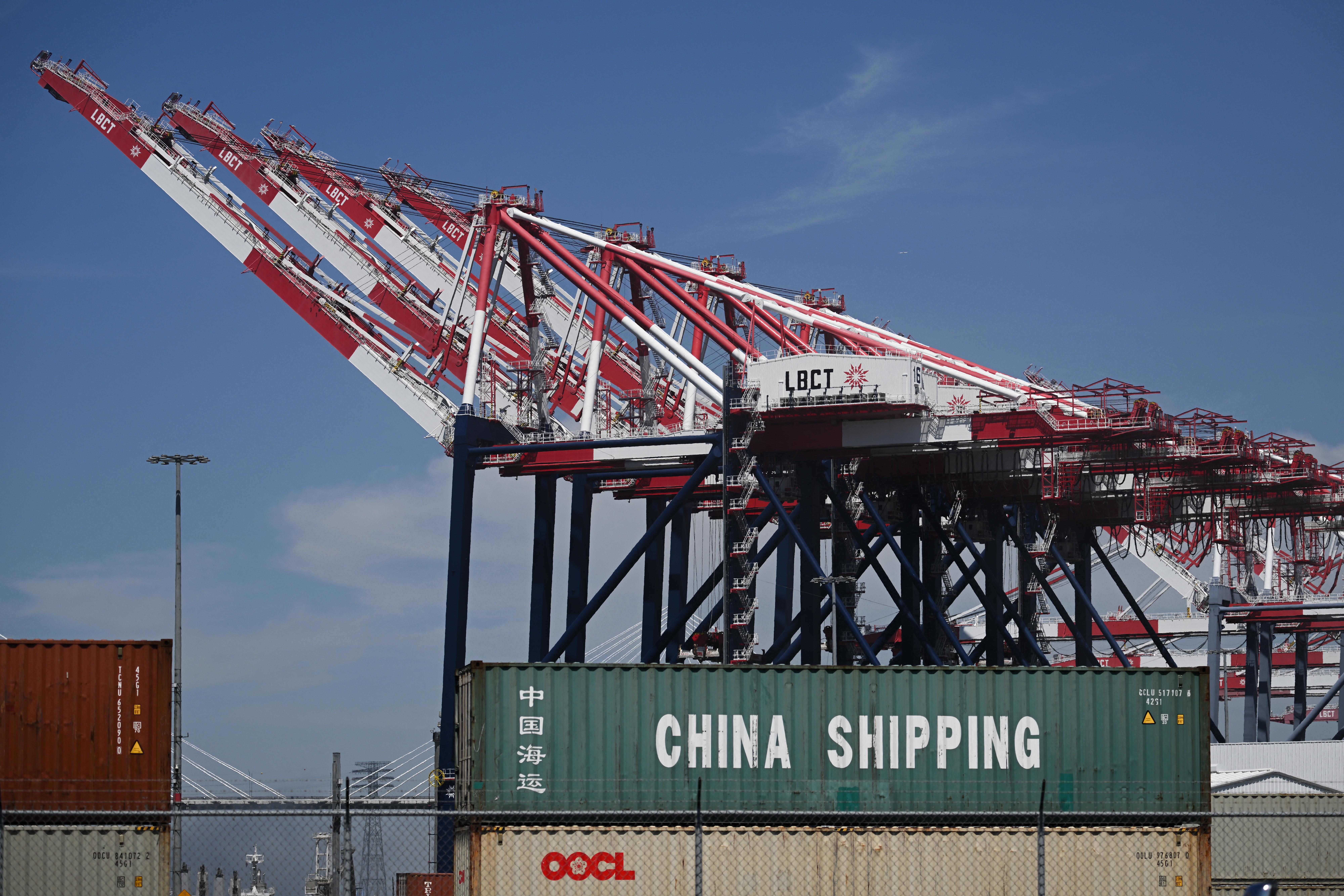President Donald Trump's tariffs and fueling tensions with China brought economic uncertainties, destabilising the safe-haven status of US bonds.
Trump's reciprocal tariffs, announced on April 2 that ranged between a 10 percent base rate to 50 percent, gave rise to volatility in global markets and shook the US bond market of around $29 trillion.
Recession concerns and rate cut expectations were triggered by the reciprocal tariffs, while stock markets declined across the globe due to the anxiety induced by the tariffs.
Ordinarily, investors sell stocks in uncertain times and seek safe-haven assets, and demand for US Treasuries rise. But the opposite was seen as equities fell and investors sold their Treasury bonds.
This week's sell-off caused bond prices to fall and yields to rise as investor skepticism came to the fore — some analysts said the unsettling changes in US Treasuries may be permanently damaging their safe-haven status.
"The fear is the US is losing its standing as the safe haven," said George Cipolloni, a fund manager at Penn Mutual Asset Management. "Our bond market is the biggest and most stable in the world, but when you add instability, bad things can happen."
The US Dollar Index fell more than 2 percent in five days to below 100.4.
As the demand for US Treasuries fell, the US 10-Year Bond yield rose 40 basis points in one week. After starting at 4 percent on Monday, it peaked at 4.51 percent on Wednesday and 4.43 percent on Thursday.
The 2-Year bond yield started the week at 3.66 percent and rose to 4.04 percent on Wednesday. It closed at 3.88 percent on Thursday.
The 30-Year bond began Monday at 4.42 percent and rose to 5.02 percent on Wednesday, ending Thursday at 4.86 percent.
Analysts said the movements in the bond market are reactions to Washington's policies, while some compared it to the global dash-for-cash in March 2020, when the Fed had to intervene with a $1.6 trillion bond purchase.

Bond investors ease with tariff pause
Less than 24 hours after reciprocal tariffs went into force, Trump announced in a Truth Social post a 90-day tariff pause except for China, saying that more than 75 countries contacted him to negotiate trade barriers, tariffs, "currency manipulation" and more, and that those nations did not retaliate.
He said he approved the pause but increased tariffs on China to 125 percent.
The pause eased concerns of investors and Trump told reporters on Air Force One Friday night, Trump said "The bond market’s going good. It had a little moment, but I solved that problem very quickly. I’m very good at this."
The backlash from Wall Street, politicians and economists on tariffs did not make Trump back down but the extreme volatility in the markets did. The demand for bonds in auctions held this week eased investors' concerns at the same time.
Meanwhile, the US Consumer Price Index (CPI) fell 0.1 percent month-on-month in March and remained below estimates at 2.4 percent on an annual basis, according to the Department of Labor data on Thursday.

Influence of the bond market
US Treasuries are crucial to the stability of financial markets in the US and across the globe, as governments finance their spending through revenues generated by taxes or by borrowing from bond markets.
A sell-off in the bond markets leads to higher borrowing costs, affecting mortgages and loans.
Trump acknowledged that the bond market played a role in his decision on Wednesday to put a 90-day pause on many tariffs, saying investors "were getting a little queasy."
If indeed it was the bond market, and not stocks, that made him change course, it wouldn’t come as a surprise.
The bond market's reaction to her tax and budget policy was behind the ouster of United Kingdom’s Liz Truss in 2022, whose 49 days made her Britain's shortest-serving prime minister.
James Carville, adviser to former US President Bill Clinton, also famously said he'd like to be reincarnated as the bond market because of how much power it wields.
The instinctual rush into US debt is so ingrained in investors it even happens when you’d least expect.















